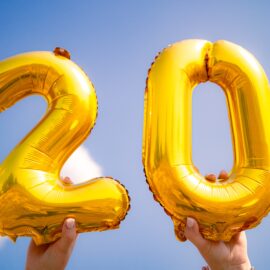

This article is an excerpt from the Shortform book guide to "The Simple Path to Wealth" by JL Collins. Shortform has the world's best summaries and analyses of books you should be reading.
Like this article? Sign up for a free trial here .
Are you tired of being a victim of your financial circumstances? Have you considered saving for your “F-You Money”?
If your financial circumstances are still dictating your life, it’s time to start saving your “F-You Money.” The term “F-You Money” comes from James Clavell’s 1981 novel Noble House. Later, financial blogger J. L. Collins used the concept in his book The Simple Path to Wealth where he outlines a simple prescription that helped him and his family retire early and live off their investments.
Here is why you should start saving for your F-You Money, and the sooner you do it, the better.
J. L. Collins: Why You Should Save ‘F-You Money’
In addition to spending less, investing, and avoiding debt, you should save until you have “F-You Money,” a financial cushion that gives you the ability to make choices about what you want to do rather than being a victim of your circumstances. For example, having F-You Money allows you to walk away from a job you hate, take a “sabbatical” to do something you dream of, or to avoid poverty if you’re laid off. Collins accumulated enough F-You Money early in his career to take extended time off work. Later, he was laid off and lived on his F-You Money for three years without a job.
F-You Money, plus the money you invest for your long-term future, both buy you freedom—and your freedom is the most important thing your money can buy. Ultimately, your goal is financial independence, the point where you can live on 4% of your nest egg a year without having to work for the rest of your life. (Your nest egg remains stable or grows if you withdraw only 4% a year and the market grows.)
The more you save and invest, the sooner you’ll have F-You Money and the sooner you’ll be financially independent. Saving and investing half your income is achievable when you learn to live modestly on the other half and don’t borrow.
Financial independence is as much about living frugally as it is about having savings and investments. If you’re laid off after 20-plus years and quickly find yourself broke, you haven’t learned to live within your means. But you can learn to live so that you’re not a slave to money because of your lifestyle and thus, not a slave to your job.
Collins and his family achieved financial independence and retired early by doing three things: avoiding debt, saving 50% of their income, and investing in Vanguard index funds. In his book The Simple Path to Wealth, he shows you how easy this path to wealth and freedom can be.
Exercise: Start Saving F-You Money
“F-You Money is a financial cushion that gives you the ability to make choices about what you want to do rather than being a victim of your circumstances. For example, having F-You Money allows you to walk away from a job you hate.
Do you have any F-You Money saved at this point? Why or why not?
What options would having F-You Money give you? (For example, how would having the financial freedom to do what you want change your life right now?)
How much F-You Money would you need to save to make the options you want a reality? What steps can you take to get closer to meeting this savings goal?

———End of Preview———
Like what you just read? Read the rest of the world's best book summary and analysis of JL Collins's "The Simple Path to Wealth" at Shortform .
Here's what you'll find in our full The Simple Path to Wealth summary :
- A simple road map to achieving financial independence and a secure retirement
- How to put your money to work for you as your “servant”
- Why you don't need a financial advisor to help you invest






